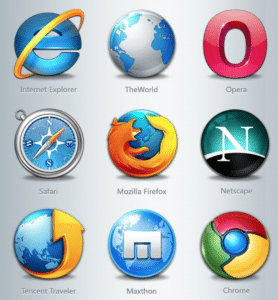Table of Contents
With cybersecurity and threats an evergrowing concern, it’s important to know if you’re being as secure as possible. Understanding which browsers are the most secure is important so that you can consider using the best and safest and can even impact internet speed. Although there are some awesome browsers, you’ll want to make sure you are following other steps to guard the privacy of your internet data.
Best & Most Secure Browsers
1. The Onion Router (TOR Browser)
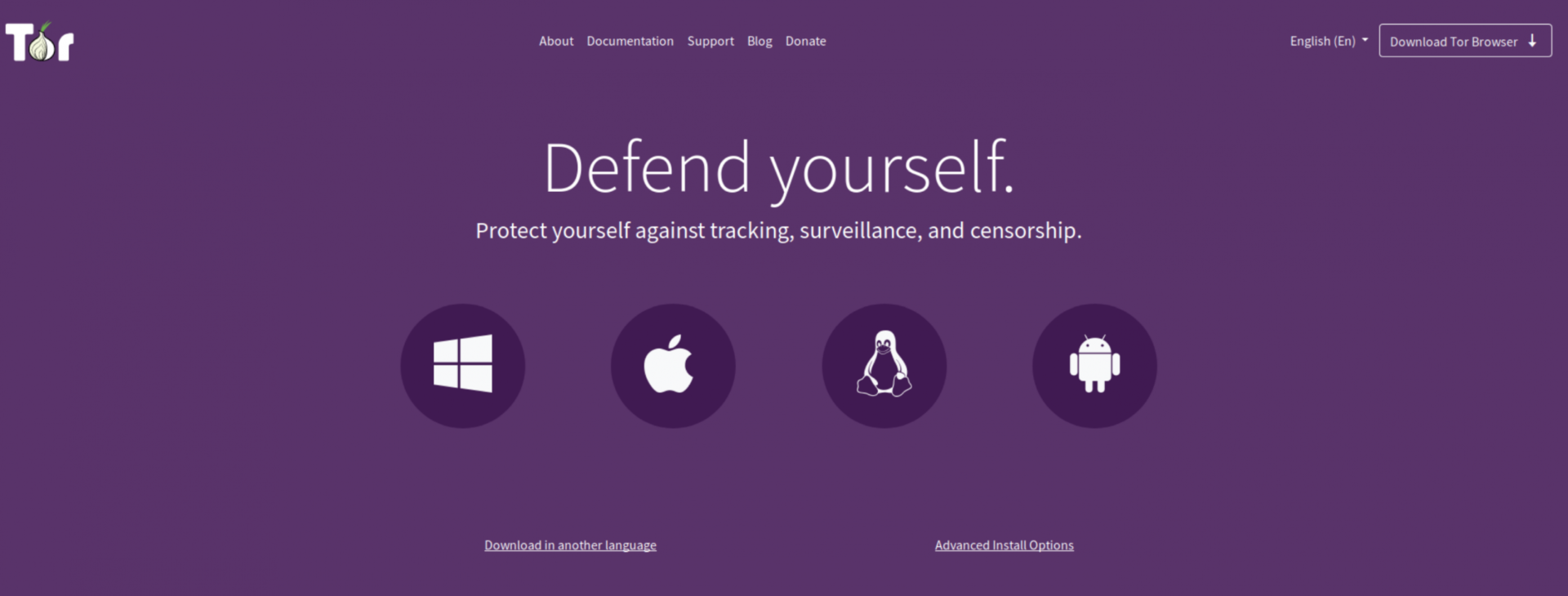
The Onion Router browser, more commonly referenced as the Tor browser, is easily the most secure browser. Out of all of the major browsers available on the internet, Tor browser is one of the only ones to both take multiple hops through a number of secure nodes upon connection and also prevent scripts from being run which in most cases prevents browser fingerprinting.
Chris Hauk, consumer privacy champion at Pixel Privacy, says “The Tor Browser is the most secure browser and the best browser. Unfortunately, since the browser sends your internet connection through a series of relays around the world before arriving at your destination, it is also the slowest, making it unsatisfactory for gaming and many other uses. As for other browsers, I am impressed with the protections offered by Chromium, which is the un-Googled open-source version of the Chrome browser that has Chrome’s best features without tracking or selling your personal information or data while browsing.”
You don’t even really need internet security software such as Panda Antivirus.
2. Chrome

Google Chrome was built to be completely secure by default, and easy to use by everyone. Chrome avoids dangerous websites and its technology protects you from a range of deceptive and harmful sites that might steal the password. Chrome automatically gets updated every six weeks hence you would get the latest browser security features and fixes.
“The Pwn2Own Hacking Event named Google Chrome the safest browser that exists at the moment. No hacks were detected with Google Chrome browser during the event – although hacks were detected in Safari, Microsoft Edge, and even Firefox”, says Thomas Bradbury, Technical Director at GetSongkey.
In terms of Chrome being secure, we really have to look at what secure means; we can’t ignore that Chrome is a google product, a company that makes its fortune by collecting data on you – they can use data collected from Chrome for financial gains from activities such as ads and ad networks. For a user who values privacy, it is advised to avoid software developed by Alphabet ie. Google.
While Chrome is one of the most efficient and friendly to use, it comes at a cost – you can use plugins and VPNs, etc to make it more secure, but out of the box, it will lean towards consumer-friendly rather than secure. Free plugins are easy to use and download through the Chrome store.
There are some concerns since it’s open-source though, which means all of the code is public and every weakness it has can be found by hackers.
Chrome also has a great feature if websites are not secure HTTPS encrypted connection. If they are just HTTP (which is if they are not HTTPS) then Google will say that the website is insecure with a broken lock next to the link – compare the 2 images below and you’ll see what we mean:
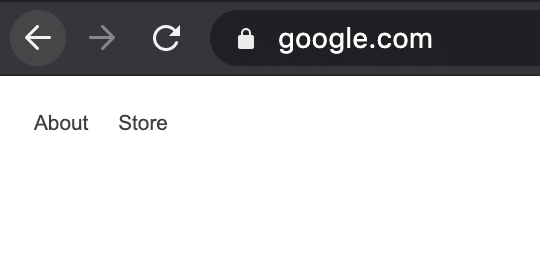
![]()
Pros:
- Frequent security updates
- Incognito mode, which deletes browsing history and blocks cookies
- Sandbox tabs that isolate each tab (so if one tab crashes, it won’t crash the entire system)
- Software that scans for malware and phishing
- Blacklists that track potentially harmful sites
- Warning messages when a user attempts to enter a blacklisted site
- Downloadable Chrome extensions to ward off hackers
- Better for enterprise and advanced users to have more available support
Cons:
- Uses a lot of memory and power
- Google exploits data and tracking
I used to mainly surf the Internet with Google Chrome and, to a lesser extent, Brave Browser. But, a few months ago, I discovered that a program called Chrome Cleanup Tool was scanning my computer, using a substantial part of its CPU and some Internet bandwidth, even though Google had never asked me for permission or anything.
Chrome is the most used browser and a good choice for security but very poor for user security features. Google tracks almost everything it can. Many people who use Chrome should still use antivirus software. There are free antivirus options, but if you want better protection you’ll want to get software specific to your device or use case. Fortunately, we made it easy for you by creating these articles:
- antivirus for Chromebook
- Best virus protection for android
- Best antivirus for gaming
- Antivirus protection with VPN
- Best business antivirus protection
- Windows 10 antivirus reviews
- best mac virus software
- Best Linux antivirus
Most people use Firefox because of this, which leads us to the next choice:
3. Firefox

Firefox browser is known for all-around privacy and security. Firefox offers many privacy and malware protection features, customizations, excellent security, and regular updates with a very active development team. In Firefox Privacy & Security area, you can access many useful customizations for different levels of privacy such as Standard, Strict, or Custom.
Allan from DotComDollar, says “It’s incredibly powerful, has a cross-platform synchronization, and the best privacy protection features, especially like Version 72. It alerts you if your email address is included in a known data breach and blocks all of those annoying “allow-notifications” popups ad blocking. It also blocks “fingerprinting” browser tracking and it brings its picture-in-picture video mode to the Mac version. Like the previous versions, it’s endlessly customizable in terms of its appearance and in the range of extensions and plugins that you can use.”
Having been a keen advocate of secure web browsers, my preferred browser for privacy and safety has always been Firefox. It has regular updates and has a large team of coding engineers working to ensure that the browser is constantly updated with security and browsing features. Firefox has a suite of security features that any end-user would appreciate being included and, hopefully, use. This and the fact it is a non-profit organization makes it a winner in my humble opinion.
Many other folks would argue that Tor is the most private web browser of choice for many, and yes, it doesn’t offer much in the way of privacy whilst browsing. But is it too secure? The fact is that some of the browser’s main security elements may ‘break’ some sites and hence why I choose Firefox instead.
There are so many very private browsers out there that one can get a little confused regarding which one is the safest browser to use. According to experts and my own personal experience, Firefox is the safest option. The standard option of the browser allows us better performance and browser tracking protection. By default, option, the trackers are turned on and it remains that way even after using Private Browsing Mode. A privacy modification option and guide can easily customize the private browsing mode. Also, remember to disable the telemetry option as it gathers technical and interaction data and also installs and runs studies within your browser. It not only breaches your privacy but is also unsafe to use. And my personal favorite feature about Firefox is that it has so many extensions to harden up and increase the security defenses against cyber crimes and threats.
Dennis, CISO of an MSSP in Houston (SCIS Security, www.scissecurity.com) says, “For your non-enterprise end-users, Firefox might be a better option than Chrome because of the recent pushes towards privacy and security-related built-in settings out of the box”. Additionally, he states ” DoH which is DNS over HTTPS (TLS) is on by default in modern versions of FireFox which protects your requests from being snooped even when off a VPN.”
Some security tips we like to recommend setting beyond the defaults when using any latest edition of Firefox
Use the following add-ons to help prevent 0-days and other client-side exploits: 
- NoScript (you’ll have to whitelist sites you surf, but it’s a first-time setup)
- Privacy Badger
- Disable WebRTC
- Adblock Plus

Although, keep note that the above plugins are also available in chrome. Additionally,
Set privacy and security browser settings to the following:
- “Always” do not track
- No permissions for Camera, Microphone (Location is ok)
- Reduce your cache size on disk via Manage Data to the minimum needed or none at all (delete on exit)
Conclusion:
Firefox is one of the more and best secure browsers. It doesn’t have any severe bugs or issues, despite having been around for a very long time. Additionally, it doesn’t collect as much user data as Chrome, for instance.
Honorable Mention: Brave Browser
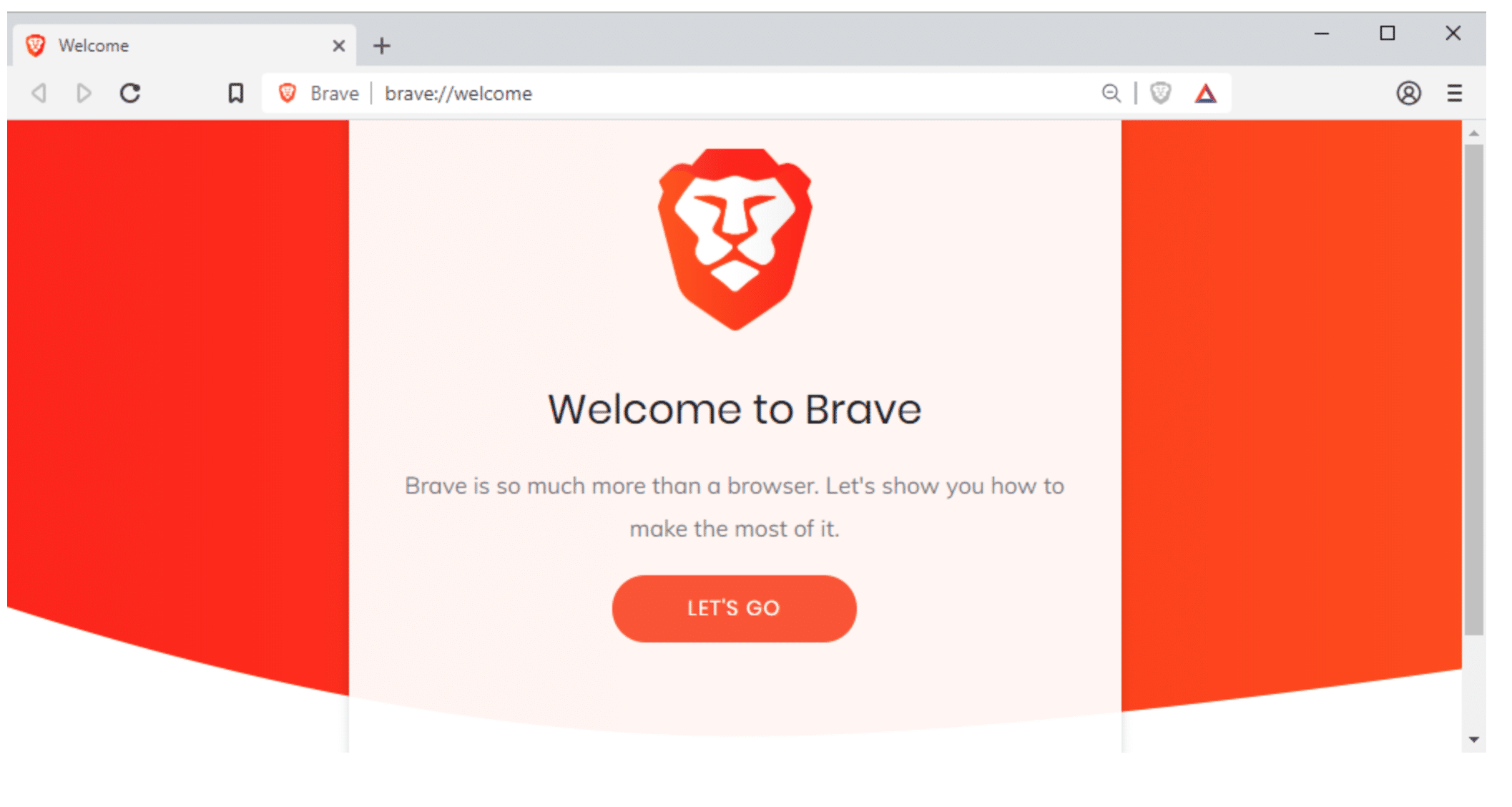
Brave is a relatively new addition to the list but is also making waves among people who want a more privacy focused browser when they search the internet. The browser is based on a unique blockchain system and might also be worth checking out.
Some users don’t have a great time with chrome. Michael, one user contributor said “Discovering by myself that a program was scanning all my files upset me a lot. So I decided to delete Chrome and switch to Brave for good. Brave Private Browser natively integrates a built-in ad blocker and ad trackers blocker. It has been specially conceived to respect and protect your privacy. To sum up, I highly recommend uninstalling Microsoft Edge and Google Chrome and using only Brave Browser. Built on the Chromium framework, it works pretty well, and you will never have such bad surprises.”
Least Secure:
1. Microsoft Edge
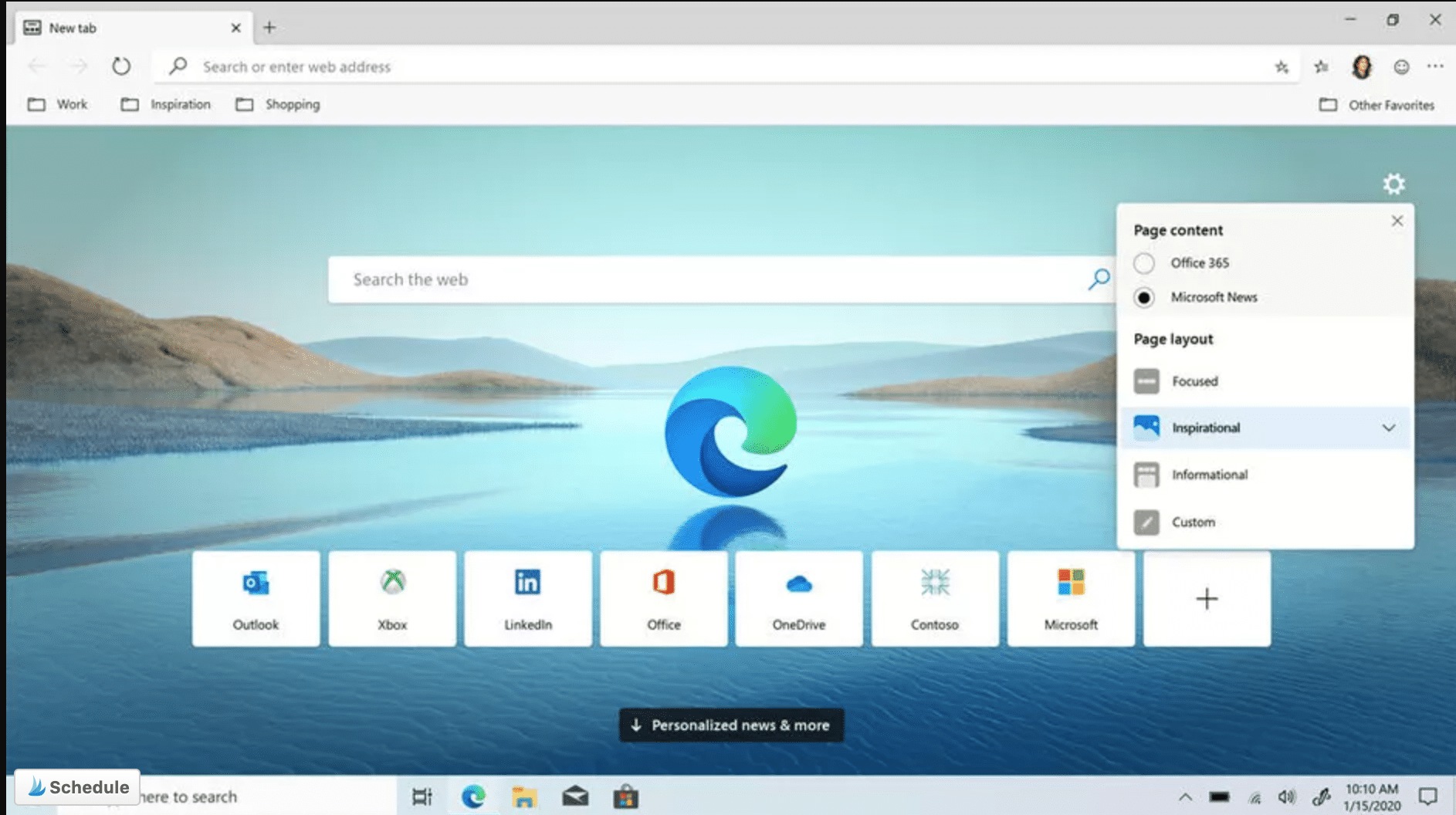
The least secure in my opinion Microsoft edge Windows default browser. Yes, the browser is Chromium Based browser which makes part of its cope open-sourced as with Firefox, but the fact is there is still fundamental flaws such as the issues earlier this year that meant the browser sends persistent identifiers that can be used to link request to back end services – such as IP addresses and location. The fact that the browser can identify your device alone is very concerning and is something I would personally avoid.
At the opposite end of the spectrum, my vote for the least secure browser goes to Microsoft Edge because it sends web pages visited by users to back-end servers. Furthermore, it has barely any interface customization, no extension support, and is missing an address bar.
It’s not terrible though as it is more battery efficient because it is the “fastest with less load on Battery life in Laptops and tablets”. However, not everybody agrees with this as some people believe it is not only the least secure but also the slowest.
I had another recent story with Microsoft Edge. Two weeks ago, while checking which programs were exchanging data with the Internet, I noticed an abnormal activity from a software component of Microsoft Edge called MicrosoftEdgeCP, although I never used this browser. After researching the web, it appeared that some malware might camouflage themselves as MicrosoftEdgeCP. I decided to delete Microsoft Edge too.
2. Internet Explorer 11

Opera

The least secure browser, despite some IT experts claiming otherwise, in my opinion, has to be Opera. The browser’s main selling point is their free VPN. Unlike the Mozilla foundation, Opera is released by Opera Software, a company that has financial goals. Not much is known about the free VPN Opera offers; could they be selling our data to their clients we know nothing about?
How Hard Is it To Hack Browsers?
When you examine what is ‘hackable’, any browser can have one or more client-side or binary (installation) specific vulnerabilities. When you examine the data sources, Chrome has had 1858+ known vulnerabilities and Firefox has had 1873+ which they’re both roughly neck and neck over the years depending on the version, but are always improving their security updates.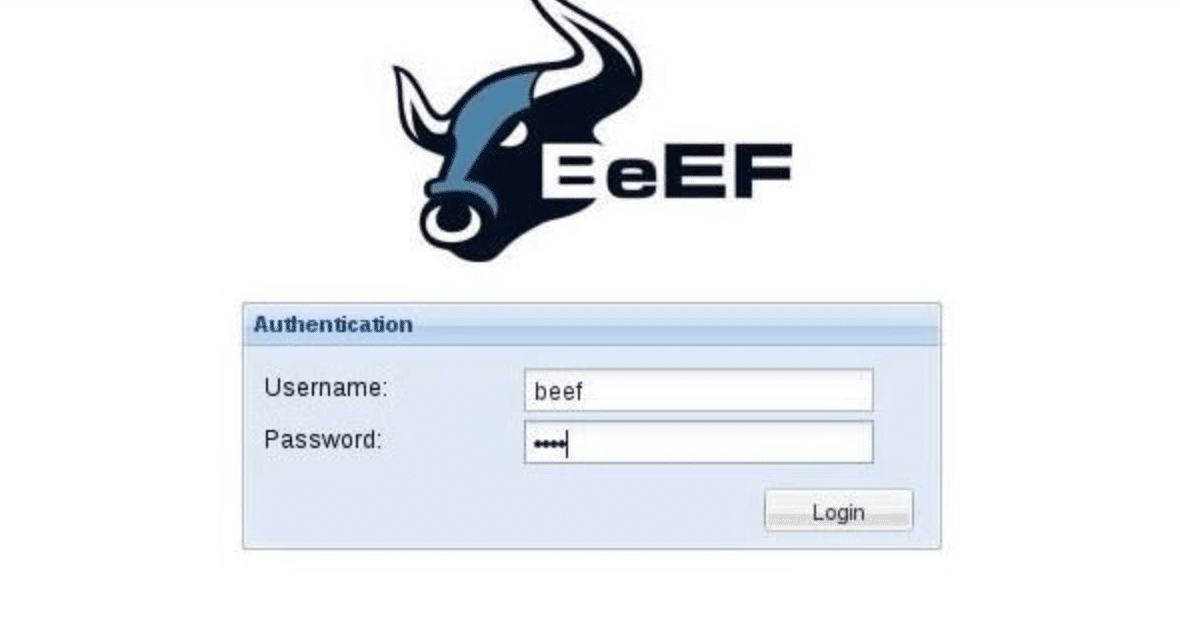
The interesting thing is that Firefox in the past has traditionally had more known ‘exploitable’ vulnerabilities, e.g. red teamers or researchers have published what’s called PoCs or proof of concept code to actually achieve a reported CVE tagged public-facing vulnerabilities. Both browsers however have not any specific number of known online exploits specific to the browser in recent years.
Of course, there are specific tools used to hack browsers using tools such as Kali Linux and Beef, both of which are actually penetration testing tools, but they can still be used maliciously. There are even tutorials and youtube videos to show you to hack using these tools, such as shown below (no link to the video will be provided for security reasons):

Luckily, the browser tends to be secure for the most part – all with some flaws. The hacking of different browsers is a very difficult task for even the greatest of minds out there. Why? Because most of the ‘hacks’ have already been found and ‘fixed’ and ongoing ‘discoveries’ by those involved help to fix further flaws for many browsers. Lucky enough for us users!
Anthony Green – Webmaster @ https://web2nation.com
The hackability really depends on the outcome and if you truly mean “Hack”. “In most cases what we really mean is to perform some “man-in-the-middle” attack to monitor what a user is doing, which a browser like Chrome would support (do you ever read the source code of plugins you install? What is Rakuten actually doing?) and a browser like Tor would explicitly ignore,” says Lorenzo from https://pandamanshop.com
The possibility to hack a browser is very low therefore it is safe to say that every browser is secure. Vulnerabilities are identified by security researchers, in the past vulnerabilities have been identified in many browsers and they have also been fixed.
Third-party browser extensions might collect data for illegitimate purposes. Users should be careful when installing browser extensions and this is where a lot of vulnerabilities can come from.
How a user gets ‘hacked’ on a client-side vulnerability nowadays isn’t really specific to the browser’s security issues; it’s the websites. Attacks such as XXE, CSRF, session cookie theft, and countless other client-side exploitation are issues in the website itself; though modern browsers do try to compensate and have their own controls in place.
What the Browser Sends
According to an academic paper published by a security researcher in Ireland, the browser sends specific device identifiers, as well as URLs that users browsed, back to the company’s corporate servers. By collecting this data, the browser can then reveal details about applications and other software residing on the device violating the user’s privacy.
Now that the new normal of working from home has brought a great opportunity for hackers to attack user browsers and thus impact businesses. Below are a few other browsers vulnerability hotspots:
- Clicking suspicious links- can infiltrate your privacy by harming your operating systems.
- Disguised web address- they let users take action that might lead to an unexpected unsafe site.
- Third-party software- lacks an adequate automatic mechanism to update existing software causing an increase in vulnerabilities.
- User’s fault- when users aren’t willing to disable a few unsafe features in order to make your system safe.
- Data leak- allows the attacker to load harmful Javascript files
- Spoofing- The attacker uses a disguise to make you believe that the email is coming from a trusted site.
Other Privacy Tools and Solutions
When choosing your new browser, you may also want to consider which extensions it does or doesn’t work with. There are a ton of excellent privacy tools out there, but they don’t all work with every browser.
Another solution that some people suggest, or used to suggest, is disabling JavaScript. In theory, this can prevent dangerous websites from running malicious scripts on your device, but the fact is this just isn’t practical anymore. Many major platforms only work with JavaScript, and there are many better tools to use to improve security.
Final Word on Most Secure Browsers
Any of the top browsers you choose will serve you well. What you really have to worry about more is what internet connection you’re on (private network at home vs wi-fi in a public area) and the websites you are visiting. The major browsers will have available plugins you can add to increase security, and of course, you can always use a VPN to increase security and secure your data going in-and-out to avoid packet sniffers and wifi hackers.
FAQs
1. Which is the most secure browser protocol?
Tor is the most secure web browser available for online browsing. The Tor network web browsers encrypt and anonymize your data. Firefox web browsers provide security without sacrificing performance. Chromium: All of Google Chrome's best features without tracking or selling your data while browsing.
2. Is Firefox safer than Chrome?
Both Chrome and Firefox web browsers employ stringent security measures. While Chrome is a secure web browser, its track record on digital privacy is dubious. Google's web browsers collect an alarming amount of data about its users while browsing online, including their real IP address and location, search history, and browsing history or website visits.
Both web browser offers enhanced tracking protection and removes features that decrease users' privacy.
3. Can Firefox be hacked?
According to Mozilla, the web browser's maker, Firefox's web browsers latest update includes a patch for a critical vulnerability that hackers are exploiting. According to the US Cybersecurity and Infrastructure Security Agency, the flaw could allow attackers to take control of your system. Unfortunately, that is about as grave a vulnerability as one can get.
4. Which browser is most secure for online banking?
For online banking, Brave web browsers are the best and most secure browser available. It is extremely similar to Chrome and is extremely simple to install on your computer. Mozilla Firefox web browsers come in second place.
5. Can private searches be tracked?
Yes, the data is still traceable. Private browsing mode, alternatively referred to as private mode or incognito browsing mode, is a feature included in many Web browsers that conceals some of your online activity from other users of the same computer. Some information about your browsing activity is stored and can be tracked and traced on your local computer.

